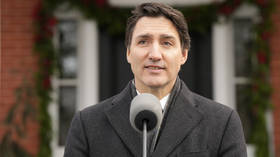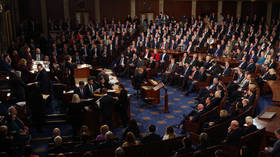G20: West to present its tax suicide note

The St. Petersburg summit marks a pivotal moment when East meets West as overall economic equals for the first time in 500 years. Western governments addicted to spending will try to bully efficient governments into taxing more than feasible to raise.
The world economy has changed enormously since 1999 when then-Canadian PM Paul Martin proposed the G20. Then the emerging economies were barely half the size of the less populous developed nations. Now things have changed.
David Cameron and Angela Merkel head to the summit determined to press tax cooperation which they may have cause to regret. Their core arguments are, as all too often in recent years, half formed without consideration of the consequences. Their assertion is that large corporations are verging on evil as they use legal processes to reduce their overall tax bill. Clearly this perturbs ordinary British citizens with high streets chock full of Starbucks which apparently don’t make any money, defying economic logic. When citizens go home, they can research corporate taxation via Google search, click a few banner ads and then ponder just how Google doesn’t make much money in Britain either.
There are of course two sides to every story. Western governments
have increased all manner of burdens on corporations and
individuals, squeezing tax rates during recession “until the pips
squeak.”
Ordinary citizens have limited recourse to avoiding tax unless they emigrate, while corporations can use their multinational structures to reduce taxes. Now cash-strapped governments are complaining about tax competition on one hand, while frequently offering a plethora of tax breaks on the other. Such hypocrisy rarely troubles the political classes while voters seem consistently confused by the obfuscation. Meanwhile, Western governments retain a tax raising habit to feed their welfare junkie status. Addicted to spending they need more income than it is feasible to raise.

Many Western governments will arrive in St. Petersburg armed demanding greater tax co-operation and perhaps even tax harmonization (a common theme within EU meetings is bullying efficient governments into taxing at the swingeing rates of the dysfunctional, quasi-bankrupt ones, like France and Italy).
The problem with tax remains one of incentives. When the British taxed at 98 percent in the 1970s most high earners fled. The fabulously glib theory of the G20’s Western leaders is that they can prevent such action by having every nation tax at high rates and ensure that all parties adhere to the plan to allow junkie governments to maintain their spending addiction.
This is an argument riddled with more holes than a block of Swiss cheese: a taxation suicide note from the stagnant West to the growing East.
President Putin can welcome Angela Merkel’s support for uncompetitive high taxes when Russia’s flat tax on income is a reasonable 15 percent. Why bother investing in Frankfurt or London when you can profit from being in Moscow’s state-of-the-art financial center? Likewise, look to Turkey, South Korea or Singapore - they want your business.
Western corporate taxes are hideously uncompetitive, stifling
startups and small businesses. Ironically the higher the tax rate
and the greater the complexity of the tax structure, the more the
US, Britain and Germany encourage large corporations to seek
loopholes to reduce regressive tax burdens. Multinationals employ
the brightest, brainiest lawyers and accountants at vast premium
salaries to think of ways to improve profits and legally avoid
taxes.
Governments can’t afford the best brains, don’t move very fast and maintain a flawed moral authority to spend everybody else’s cash in what has always proven to be the least efficient manner.
It is perfectly reasonable for families and corporations alike to reduce their taxes legally. It is perfectly silly of governments to think they know best and indeed that they can make the most efficient use of resources.
The world is a competitive place. Leaders who don’t acknowledge this may strut the world stage, but will ultimately impoverish their citizens. Ironically, befuddled politicians like David Cameron love to discuss the ‘global race’, then impede their companies with high taxes because they lack the political skill to promote a growth agenda. Nations keen to develop commerce and living standards appreciate that high tax rates don’t work and will enjoy growth while high tax countries disincentivize ingenuity.
The G20 meets at a fascinating economic tipping point this
weekend in St. Petersburg. A vast chunk of the world’s economy is
represented but far from all of it and nimble low-tax states like
Singapore will evaluate the investment prospects they can garner
from the West’s declining power, fueled by its high tax strategy
which stifles growth.
The statements, views and opinions expressed in this column are solely those of the author and do not necessarily represent those of RT.
The statements, views and opinions expressed in this column are solely those of the author and do not necessarily represent those of RT.













